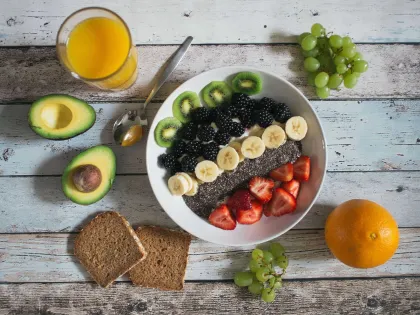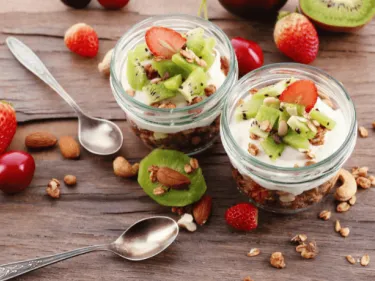Weight loss is usually recommended for people who are overweight (defined as BMI of 25.00 or higher) or obese (defined as BMI of 30 higher) in order to achieve a healthier lifestyle, and reduce the risk of chronic diseases such as heart disease, diabetes, and respiratory diseases. But, what do you do if you’ve been putting in lots of effort to lose weight and you’re not seeing results?
What do the experts say?
In Australia, the National Health and Medical Research Council (NHMRC) have guidelines around overweight and obesity which suggest starting with a goal of losing 5% of your body weight. For example, if you weigh 90kg, this would equate to a weight loss goal of 4.5kg. Whilst this might not seem like much, studies show that weight loss of 5-10% is significant enough to improve your quality of life and health, and reduce risk factors for chronic diseases like heart disease and diabetes.
Top tips for staying motivated
Don’t be too disheartened if you are not seeing results straight away. Weight loss isn’t easy - remember it’s a marathon not a sprint! Here are some key tips to staying motivated and reaching your goals
- Set an achievable weight loss goal of 5% to 10% of your starting weight or around 0.5 to 1kg per week. Check out our article"How much weight loss should I aim for?" to help with this
- Don't just focus on weight loss - measure other health behaviours such as diet and exercise because even if the scales don’t show any progression you may see positive changes to your eating habits and exercise levels which are directly linked with positive health and wellbeing
- Find exercise and foods you enjoy! You are way more likely to succeed in your health goals if you’re doing it a way you enjoy and can sustain long term.
- Don't always rely on the scales - You may have developed muscle mass which weighs more than fat and therefore the progress may not be evident initially. Try using other measures such as measuring your waist circumference or how your clothes fit will also help you to see if you have lost weight, even if the scales don't show it.
- Be patient!
The bottom line:
It’s important to remember that weight loss and healthy habits aren’t a quick fix - they are lifelong habits with lifelong benefits! Plus, your health doesn’t totally equate to your weight. Whilst you might not feel like you’re seeing results on the scales, ask yourself if you feel more energised, are sleeping better, have better focus and concentration, eating better foods or having better workouts then these are important results too!
For more information on losing weight, check this out: https://theconversation.com/you-dont-have-to-be-the-biggest-loser-to-achieve-weight-loss-success-11587.













